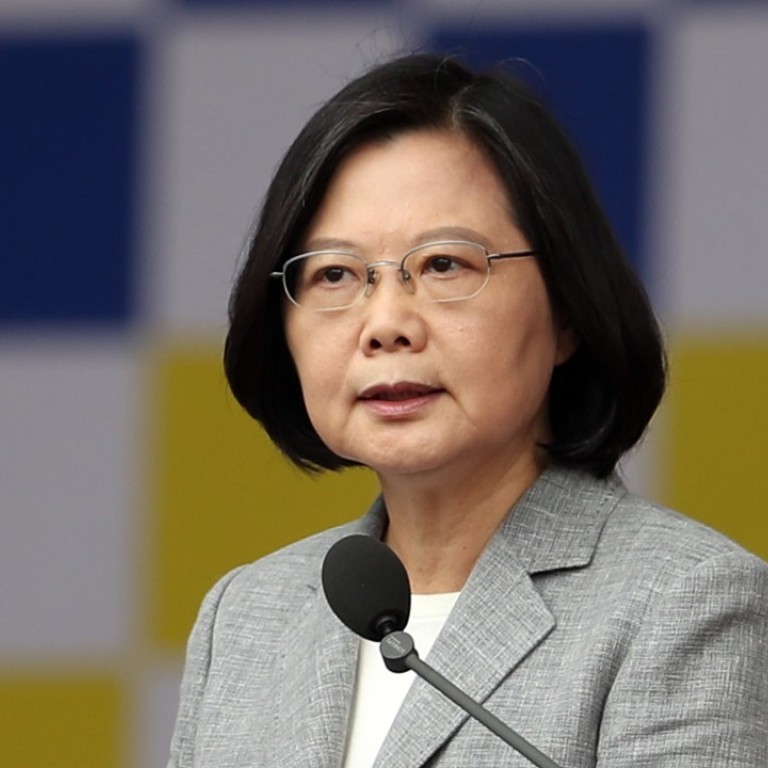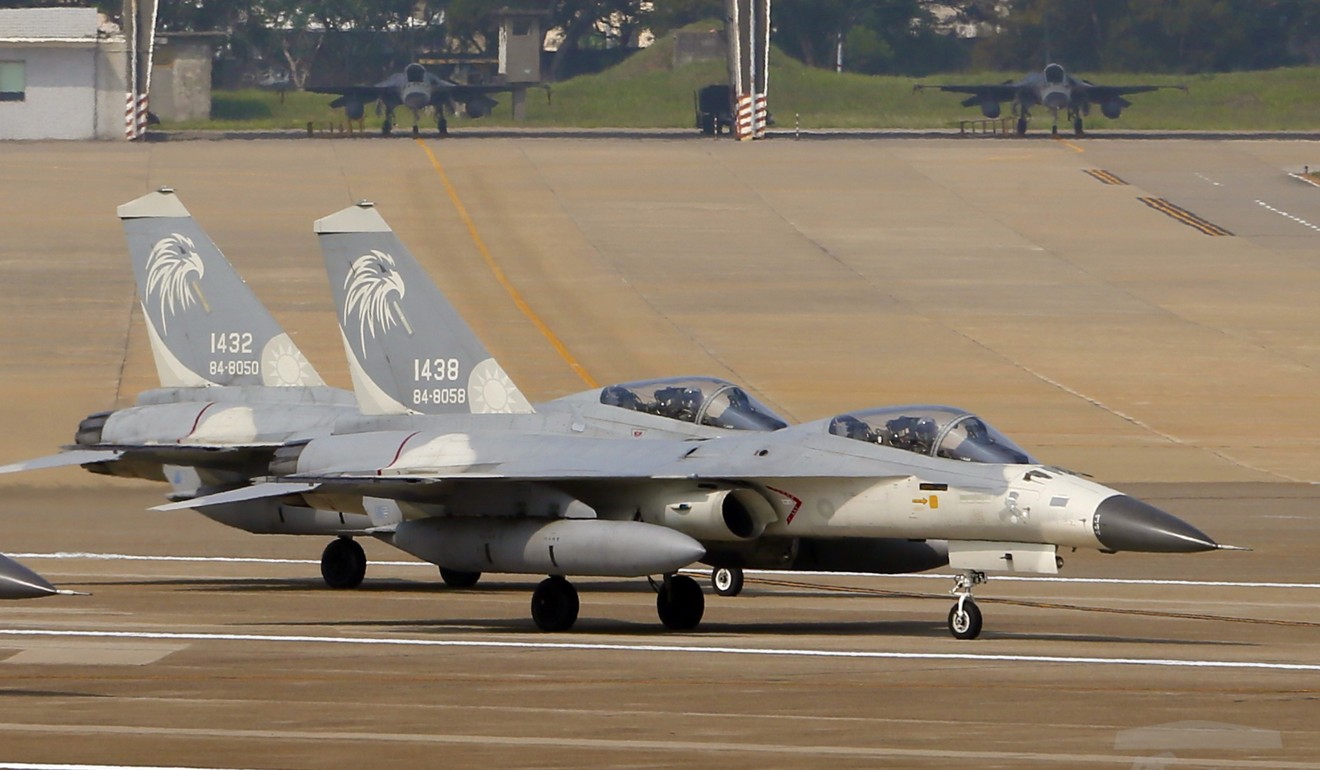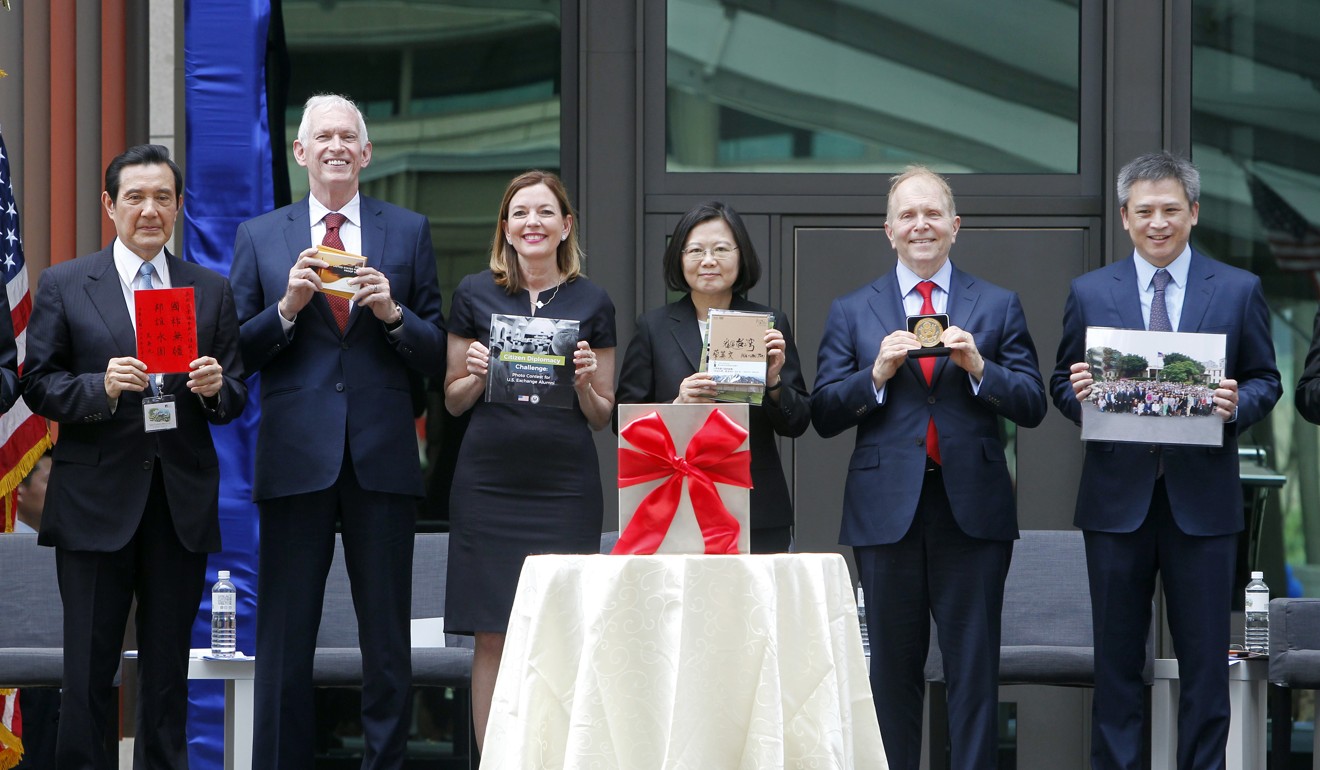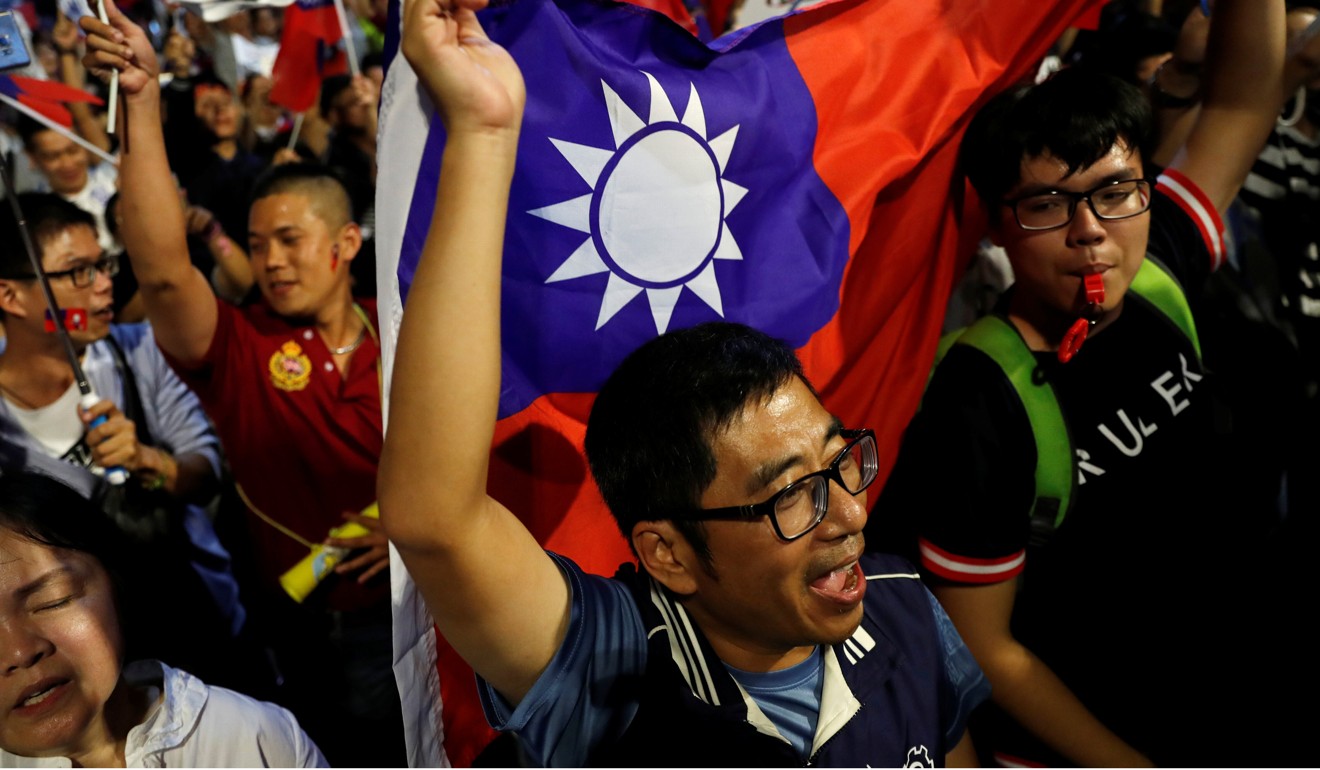
Taiwan’s leader is asking for more misery at the polls if she plays the ‘America card’, analysts warn
- DPP’s crushing election defeat showed voters want a good economy and an improved standard of living, analysts say
- Ill-advised for Tsai Ing-wen to try to build her 2020 presidential campaign on sketchy promise of economic incentives from Trump administration
Taiwan President Tsai Ing-wen – stung by her party’s crushing defeat in last month’s local elections – could be in for another disappointment at the polls in 2020 if she tries to win a second term as the self-ruled island’s president by playing the “America card”, analysts have warned.
Given that voters in the island’s local elections expressed their deep dissatisfaction with Tsai’s record on local issues ranging from pension plans to labour laws, it would be Ill-advised for her to try to build her 2020 campaign on the promise of receiving economic incentives from US President Donald Trump’s Taiwan-friendly administration, the analysts said.
But despite calls from within the independence-leaning Democratic Progressive Party for the president to drop out of the 2020 presidential race, Tsai could feel empowered to ignore the warnings because she remains the DPP’s most powerful figure – and has no rival strong enough to challenge her, the analysts said.
“Tsai is tipped to be the DPP’s candidate in the 2020 polls and of all DPP bigwigs, she is the one – not [Premier] William Lai or [secretary general to the president] Chen Chu – who can best work with the United States, which also sees her as the best choice for cooperation,” said Su Chi, head of the Taipei Forum and a former secretary general of the island’s National Security Council.

Tsai – who stepped down as party chair in the wake of the overwhelming defeat – dismissed reports that party officials have forced her to drop out of the 2020 campaign.
Rather, Su said, Tsai quit as chairwoman because she accepted blame for the electoral defeat. But she stressed that she remained confident in the party’s future and predicted she would rebound from the setback to “lead our team to tackle the challenge in the next stage”.
“Democratic politics is not a royal court drama … and we must have a basic trust in democratic politics,” Tsai told reporters during a brief news conference in the corridor outside her office in Taipei.
Taiwan election results a vote against DPP’s business as usual
The November 24 election debacle left the DPP in control of just six of 22 Taiwan’s cities and counties. By contrast, the mainland-friendly opposition Kuomintang party won 15 cities and counties, including Kaohsiung, a DPP pro-independence stronghold in southern Taiwan, in what pundits called a referendum on the government’s disappointing administrative and economic performance.
This time, voters did not buy the Taiwanese identity or ideological card the DPP often is fond of playing. Basically, the party has tried to win over voters by warning them that if they did not vote for the pro-independence party and the KMT’s mainland-friendly politicians got in, Taiwan would be swallowed up by Beijing.

But what the DPP did not count on this time was that even the younger voters who traditionally throw their support behind the party either did not bother to vote or voted for candidates they liked without giving much thought to political affiliations.
Now, analysts say, Tsai is left trying to deal with Beijing and boost her chances in 2020 by tapping the island’s ties with the US for its support on a variety of items ranging from free-trade deals to business incentives.
Taiwanese president resigns as party chairwoman after huge polls defeat
“Tsai will need to have stronger support from the US to offset a series of sweetening measures expected to be offered by China now that the KMT is in control of 15 cities and counties,” said Yen Chien-fa, a business administration professor from Taiwan’s Chien Hsin University of Science. It would come down to Taiwanese voters choosing Washington over Beijing, if forced to pick one over the other, Yen said.
Beijing has already promised to work closely with Taiwan officials to bring substantive improvements to the KMT-controlled cities and counties. Among them is Kaohsiung, whose KMT mayor-elect Han Kuo-yu has openly declared his support for the “1992 consensus”, which the mainland considers a political foundation for the resumption of cross-strait exchanges.
That move would be a significant step for Beijing, which sees Taiwan as a wayward province awaiting reunification, by force if necessary.
The mainland suspended official exchanges with Taiwan after Tsai was elected president in 2016 and refused to accept the understanding inherent in the consensus – that the two sides could continue to talk provided they agreed there was only one China.
The Taiwanese voters have spoken: what it means for Taiwan and China
Stephen Young, a former director of the American Institute in Taiwan, which represents US interests in the absence of formal ties, said Washington should provide further support for Taipei to stop Beijing from bullying or threatening the island.
“The US can and should make it clear that our own commitment to Taiwan’s survival and self-defence is as solid as ever,” he said at a recent forum in Taipei.
“I believe such actions would not only hearten spirits in Taiwan but also reinvigorate confidence in America’s commitment to a free and prosperous Asia-Pacific region.”

But analysts said playing the “America card” might not work in the 2020 polls, citing the non-reaction the US representative in Taiwan elicited from the island’s voters when he suggested that Beijing was disrupting the local elections.
Ahead of the polls, James Moriarty, chairman of the American Institute in Taiwan, Washington’s de facto embassy in Taipei, called out “attempts by external powers here in Taiwan to try and alter the debate and spread false information”.
His remarks echoed the DPP’s accusations that Beijing was trying to undermine the DPP’s electoral chances.
Yen Chen-shen, an American and European studies research fellow with National Chengchi University’s Institute of International Relations, said the local election results showed Taiwanese voters were more interested in having a strong economy and a better standard of living rather than their leaders’ political or diplomatic accomplishments.
“What voters want is substantive things like a free-trade agreement that could help improve Taiwan’s economy,” he said.
“But until now, the US has not even agreed to sign the Trade and Investment Framework agreement long desired by us.”
Talks on the proposed trade and investment deal have been on hold since October 2016.
‘I will make Taiwan indispensable’ says island president
Though the Trump administration had been friendlier to Taiwan than its predecessors, it cared more about its own interests and was using Taiwan as a pawn to gain leverage with Beijing, Yen said.
In August, Trump signed the US$716 billion National Defence Authorisation Act, which included provisions to improve Taiwan's defence capabilities and allow high-level military exchanges, including port calls, between the US and Taiwan. That followed the signing in March of the Taiwan Travel Act which allowed high-level officials from the US to visit Taiwan, and vice versa.
US ‘plays Taiwan card’ with Tsai trip to Nasa mission control
Yen said that while the US had approved two arms deals with Taiwan, they did not include state-of-the-art weapons, such as the F-35 fighter jets that Taiwan covets.
Moreover, top US officials such as Secretary of State Mike Pompeo or Defence Secretary James Mattis had yet to visit the island, he said.
Wang Kung-yi, a political-science professor at Chinese Culture University in Taipei, said that if Tsai wanted a second term, she needed to augment improvements to her domestic policies by addressing cross-strait issues instead of trying to derive benefits from playing the America card.

